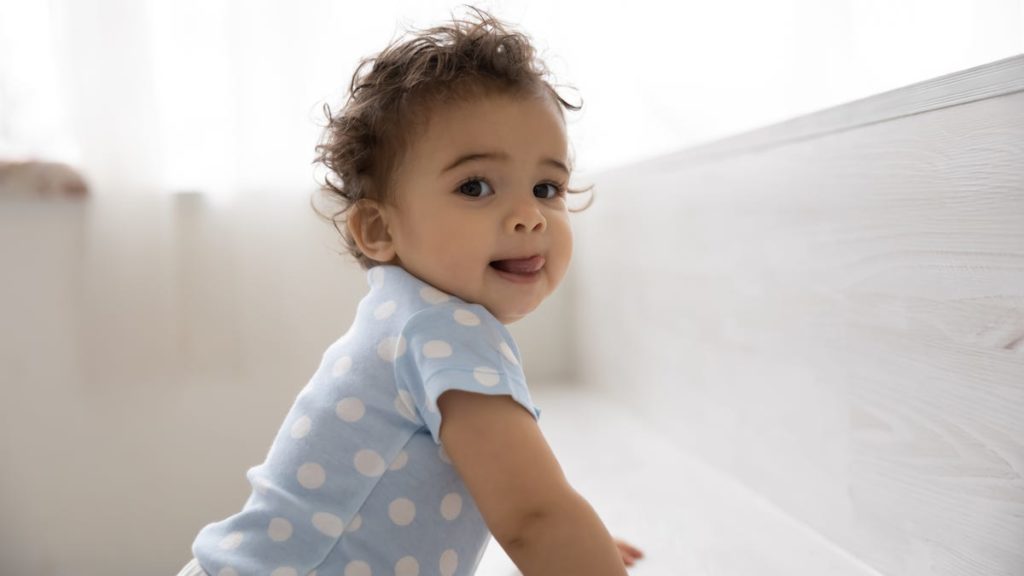When many people think of babies, they think of joy. We visualize the youngest years as a whimsical time marked by lightheartedness and wonder. But experts in infant and early childhood mental health say from birth to 3 years old children are capable of a range of deep and intense emotions, including sadness, grief and anger, and just like their caregivers, are susceptible to mental health challenges.
“We shouldn’t think of kids who are 0 to 3 as impervious to major stressors in the family,” said Jamie Howard, a senior clinical psychologist at the Child Mind Institute. “The diagnostic criteria for something like a depressive disorder of early childhood is going to be based much more on behavior and observable characteristics, because young children can’t tell us, ‘Yeah, I’m having feelings of worthlessness. They have no metacognition, which is the ability to think about their thoughts. So it’s very, very behavioral.”
Mental health disorders in children can change the way they learn, behave and cope with feelings, and can make it difficult for them to get through their day, according to the Centers for Disease Control and Prevention. Research shows preschoolers, and even babies, can experience depression and anxiety.

Children are resilient, especially when they have a supportive caregiver. But it’s also true that the early years are a pivotal time for development, and a young child’s emotional well-being can impact their health later in life.
Early emotional experiences become embedded in the architecture of children’s brains. It’s why experts say it’s important caregivers recognize that just as adults need their mental health tended to, so do children.
Are the little kids all right?: Survey shows COVID is taking a toll now and will in the future
“Studies show roughly 9.5 to 14% of children from birth to age 5 may have emotional challenges that are significant enough to be called mental health disorders,” said Jennifer Boss, director of infant and early childhood mental health coordination and strategy at Zero to Three. “Typically the first people to recognize that something seems off are parents. They are the ones who notice that distress.”
Stress happens. I don’t want parents to feel racked with guilt and worry.
Experts say parents should be sensitive to their children’s emotional , but they also caution against excessive worry.
“There’s so much important brain growth and development happening, so we want to make sure that we address young children’s needs. That said, you don’t have to be perfect. Stress happens. I don’t want parents to feel racked with guilt and worry,” Howard said. “If you’re cuddling your child and feeding them and getting them to sleep and getting them on a routine, you’re doing a good job.”
Concern over kids’ mental health during pandemic
Doctors in France have raised concern over the impact of the coronavirus pandemic on the mental health of children. The country’s busiest pediatric hospital has seen double the number of children needing treatment after attempted suicides. (March 12)
AP
What signs parents should look for
To gauge a child’s mental health, Howard recommends parents monitor milestones (the CDC has a comprehensive guide) and behavior.
Infants should be physically growing and emotionally connecting. As they get older, Howard said there are four major categories of developmental milestones to watch: expressive language (developing words), receptive language (understanding what a person is saying), gross motor (sitting up), and fine motor (picking something up). If you’re wondering if your child is meeting milestones and online resources don’t suffice, check in with your pediatrician.
The most important thing experts say caregivers should look out for are behavioral changes. Caregivers know their babies intimately. They know the foods they like, the way their baby sleeps, the sounds their babies make, their various cries and what they mean.
“Parents know a lot, and they can feel secure in trusting themselves to recognize when something doesn’t feel right,” Boss said.
When a child is born physically or developmentally compromised, it can make it even harder for parents to read cues and understand their child’s behavior. Experts say in these cases it’s even more important to check in regularly with a healthcare provider.
If your child needs help
If you’re concerned about your child, experts say the best thing you can do is talk to your pediatrician. They may recommend a specialist – such as a child psychologist – to do a more in-depth evaluation.
If you recognize your child is struggling, there are also steps you can take at home to offer extra nurturing.
“Give hugs, sit closely, read books together, play, pet the family dog,” Howard said. “You want to notice what your child needs and give it to them. Because that’s attachment. Some kids are easy and some kids are not, but either way the onus is on the parents to consistently meet the child’s needs. And during times of stress they often have more needs.”
Why it’s important to take care of you, too
Babies largely exist within their relationship with their primary caregiver. That relationship is critical to healthy growth and development.
Howard said especially from 0 to 3 months, the most important person to monitor is not baby, but mom. Many experts note that at any age, a parent’s stress can trickle down to their child.
“It’s much more common for mom to have postpartum anxiety and depression. And if she’s not equipped to consistently respond to the baby’s needs, that’s the biggest risk factor,” Howard said. “If a child has a healthy caregiver who’s doing his or her best, then they can cope with quite a lot.”
Resources
You may also be interested in:
Published
Updated
